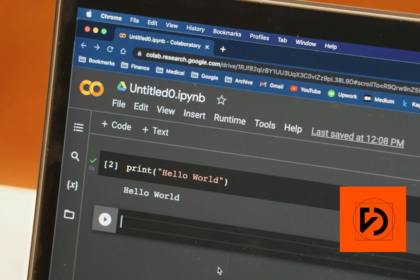How Mobile Applications Can Benefit from Machine Learning
What is Machine Learning?
Machine learning, also known as ML, is a field of artificial intelligence that enables mobile applications to learn and improve based on experience. This process involves using algorithms that analyze data and draw conclusions without the need to program every possible scenario.
This technology has gained popularity in recent years due to the capabilities it offers in data analysis and forecasting future events. Companies are increasingly turning to machine learning to deliver more personalized and efficient solutions to their users.
In this article, we will discuss how mobile applications can benefit from machine learning, its advantages, and how it can impact business development. We will also look at specific use cases of this technology in various sectors.
Advantages of Using Machine Learning in Mobile Applications
Machine learning can significantly enhance the efficiency of mobile applications by reducing the time needed to perform repetitive tasks. An example can be automatic photo classification or speech recognition, which eliminate the need for manual data processing.
Another important aspect is the personalization of customer service. By analyzing data collected from users, applications can deliver more accurate recommendations and offers, increasing user satisfaction and loyalty.
Another advantage is the ability to predict user preferences. Based on the user’s behavior history, machine learning algorithms can forecast which products or services may interest them in the future, which is especially useful in e-commerce and marketing applications.
Examples of Mobile Applications Using Machine Learning
There are many mobile applications that effectively use machine learning. One of them is the Dango app, which predicts emojis, stickers, and GIFs based on the content typed by the user. Such applications use algorithms to analyze context and provide the most appropriate suggestions.
In the food delivery industry, apps like Uber Eats and Deliveroo use machine learning to personalize orders and recommend restaurants. By analyzing users’ order history, the apps can suggest new dishes they might like.
In the transportation sector, apps like Google Maps and Waze use machine learning to monitor road conditions and recommend optimal routes. Real-time data analysis allows for quick response to changing conditions and avoiding traffic jams.
How to Implement Machine Learning in Mobile Applications?
Implementing machine learning in mobile applications can be challenging, but the right approach and tools can significantly simplify the process. The key is to understand business and user needs to choose the right algorithms and techniques.
The first step is to analyze the available data and identify which information can be useful in the context of machine learning. Next, it is important to choose the right tools and libraries, such as TensorFlow or PyTorch, which enable efficient data processing.
The next step is testing and optimizing machine learning models. This process includes training algorithms on available data, validating them, and continuously improving as new data is collected. It is also important to consider the scalability of solutions to adapt to growing user needs.
Challenges of Implementing Machine Learning
Despite numerous advantages, implementing machine learning in mobile applications also comes with certain challenges. One of the main issues is the quality of data. Machine learning algorithms require a large amount of high-quality data to learn effectively and generate accurate results.
Another challenge is the need for continuous updating of machine learning models. A dynamically changing business environment and user preferences require regular updates of algorithms to ensure their relevance and effectiveness.
Additionally, privacy and data security issues are significant challenges. Companies must ensure that user data is stored and processed in accordance with applicable legal regulations, which often involves additional costs and resources.
The Future of Machine Learning in Mobile Applications
The future of machine learning in mobile applications looks promising. This technology will continue to evolve, offering increasingly advanced personalization and automation capabilities. As algorithms become more sophisticated, we can expect mobile applications to be even better tailored to individual user needs.
One direction of development is the integration of machine learning with other technologies, such as the Internet of Things (IoT) or augmented reality (AR). Combining these technologies can lead to the creation of new, innovative applications that can deliver even more advanced and interactive experiences to users.
The development of deep learning technology also opens new possibilities for mobile applications. Deep learning algorithms can process large amounts of data and detect patterns that would be difficult to notice with traditional machine learning methods. This can lead to even greater efficiency and accuracy of applications.
Machine learning and artificial intelligence have great potential when it comes to developing mobile applications.
Thanks to automation, personalization, and data analysis capabilities, these technologies can significantly enhance the efficiency and attractiveness of applications.
The key to success is the proper implementation and optimization of machine learning algorithms, which requires both technical knowledge and an understanding of user needs. At Da Vinci Studio, we have the experience and skills to help integrate machine learning into your application, regardless of its scale.
As technology continues to develop, we can expect even more advanced and innovative solutions that will change the way we use mobile applications. We encourage you to contact us to find out how we can help you achieve your business goals using machine learning.














